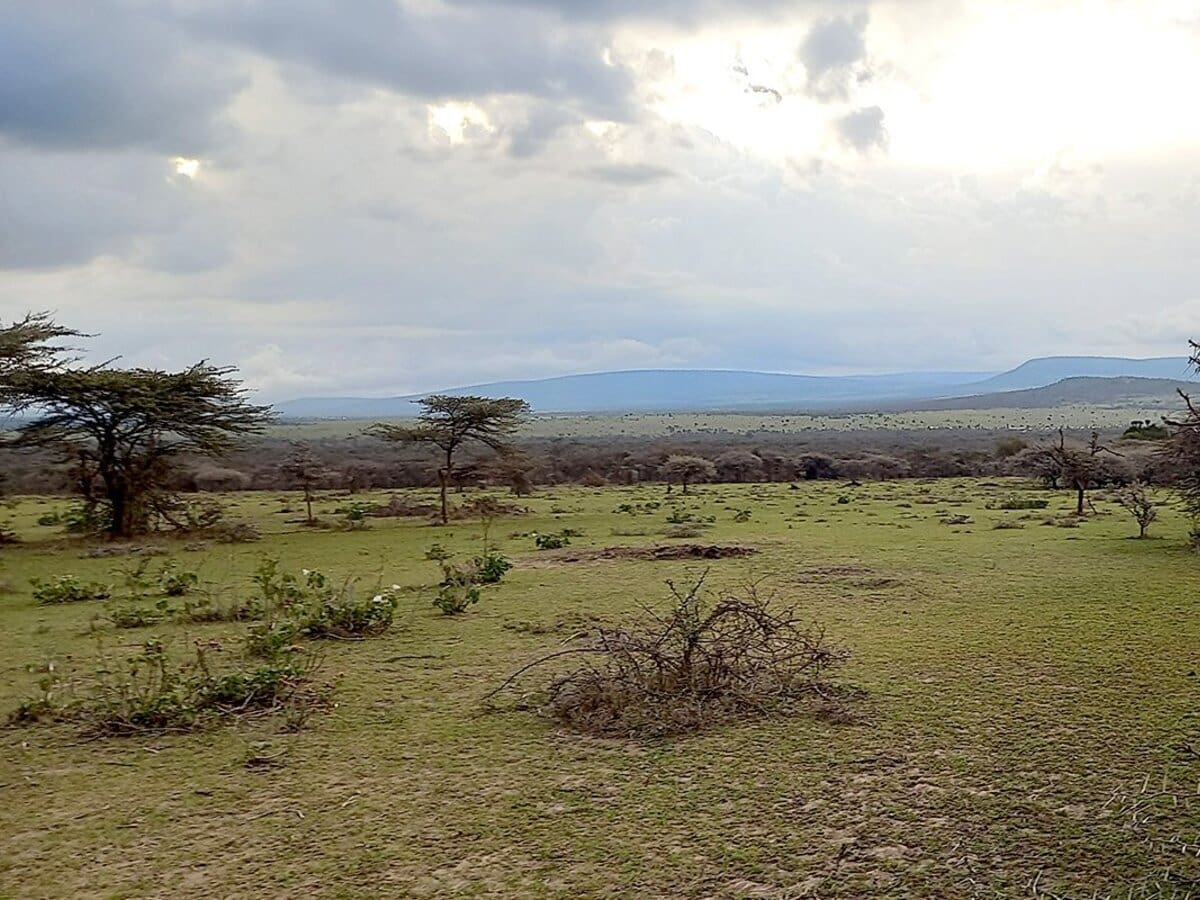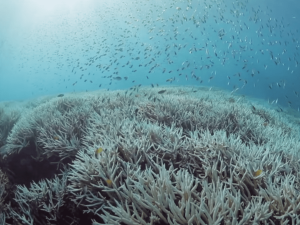Indigenous Maasai communities in Tanzania are being subjected to more land-grabbing and human rights abuse. This time, a major tourism company is the culprit.
Thomson Safaris stealing Maasai land
On Tuesday 16 April, independent policy thinktank the Oakland Institute exposed Boston-based Thomson Safaris’ human rights violations against Indigenous villagers. Specifically, the company has tightened control over land it previously stole from Maasai communities.
Notably, Thomson Safaris is exploiting the Tanzanian government’s brutal repression of land defenders to legitimize control over Maasai land in the Loliondo Division of the Ngorongoro District.
In June 2022, the government carried out land demarcation to create a game reserve in Loliondo. As the Canary’s Tracy Keeling previously reported:
done so in order to lease their land to a UAE-based trophy hunting company called Otterlo Business Corporation (OBC), which has operated in the country for decades.
Notably, the Emirati royal family owns OBC. During this eviction in 2022, security forces fired live ammunition on the Maasai. As a result, they severely wounded dozens and displaced thousands more Maasai community members. The United Nations Permanent Forum on Indigenous Issues (UNPFII) has estimated that the land-grab for the 1,500 square km (approximately 370,000 acres) game reserve alone could displace 70,000 Maasai people from their ancestral lands.
Of course, Thomson has capitalised on this. In the immediate aftermath of these events, it carried out a resurvey of a long-contested land claim they have in the same area.
Violence against local Maasai communities
The Oakland Institute conducted field research in Loliondo and spoke to Maasai pastoralists Thomson’s brazen land-grab impacted.
From this, it produced the report “Capitalizing on Chaos: Thomson Safaris Tightens Its Stranglehold Over Indigenous Lands in Tanzania”. In it, the Oakland Institute exposes how Thomson has harmed communities there.
As it explained [Pdf, p4]:
Since 2006, the Mondorosi, Sukenya, and Soitsambu villages in the Loliondo Division of the Ngorongoro District have been ensnared in a prolonged struggle for the return of their lands against Tanzania Conservation Limited (TCL) – a company run by the owners of Thomson Safaris, a high profile, award-winning, Boston-based tourism company. Local communities seek to reclaim 10,000 acres of land in what is known to them as the Sukenya farm, originally transferred without their Free, Prior, and Informed Consent and vital to their pastoral livelihoods.
Now, communities have said Thomson excluded them from the resurvey process. Moreover, in a November 2023 court filing, they alleged that the company’s agents enforcing these boundaries have abused them.
Significantly, the report highlighted how Thomson’s strict enforcement of the new boundaries has aggravated daily hardships for the villagers. On top of this, villagers have reported Thomson Safaris’ guides have committed violence against pastoralists and their children.
For instance, one villager cited in the report alleged:
My boy was taking care of the livestock when he was caught by a Thomson Safaris’ guide and beaten for no reason. He suffered injuries on his body…Our rights have been violated by an intruder in our ancestors’ land.
To make matters worse, Thomson’s strict enforcement of the land boundaries has reportedly forced villagers to walk hours to access essential medical services and schools. Communities have also lost access to prime grazing land. Naturally, this has been particularly catastrophic in the context of the drought that ravaged the Horn of Africa between 2020 and 2023.
Violating Maasai rights
Yet this land Thomson has violently seized originally belonged to the local communities living there.
Since 2006, the Mondorosi, Sukenya, and Soitsambu villages have been fighting for the company to return their lands. Local communities seek to reclaim 10,000 acres of land in what is known to them as the Sukenya farm.
There, in 1984, the Tanzanian government originally gave state-owned Tanzania Breweries Ltd (TBL) the title deeds for this vast expanse of land. TBL procured the land for barley production. In 2003, it extended this by a further 2,617 acres.
Naturally, the government did not obtain the Free, Prior, and Informed Consent (FPIC) of local Maasai communities for this. Indigenous Peoples and local communities hold this right under a number of international human rights instruments.
However, this was just the start of the corporate colonial land land-grab. As the report explained:
In 2006, Tanzania Conservation Limited (TCL) – a company operated by the owners of the Boston-based tourism company, Thomson Safaris – purchased a 96-year lease to 12,617 acres of land from TBL.
So now, Thomson Safaris is denying local communities the return of this stolen land.
On top of this, the company is also allegedly lobbying the Tanzanian government to change the land use in the surrounding area exclusively for tourism. Such a move would further prohibit Maasai pastoralists’ livestock from accessing vital water and grazing land.
Global North governments propping up land-grabbing luxury tourism
In response to an inquiry by the Oakland Institute, Thomson Safaris’ attorneys in Tanzania denied the allegations about the resurvey and its impact on villagers. While they called the claims “baseless,” the firm failed to provide any evidence that the resurvey took place with full community participation.
Despite the ongoing land dispute and allegations of violence made in court by villagers, high-profile universities, museums, and conservation groups still use the company as their preferred tourism operator.
Moreover, Oakland Institute executive director Anuradha Mittal called out the Tanzanian government for its complicity in tourism-driven land-grabs. She said that:
Over the past two years, the Tanzanian government has repeatedly shown it will aid and abet foreign corporations operating luxury safaris at the expense of the Maasai communities who have stewarded these lands for generations. While labeling itself as a sustainable tourism operator, the American firm is getting away with capitalizing on this repression
Predictably, the US government also has its corporate-colonialist fingerprints all over it too. In a separate report, the thinktank has highlighted how USAID – the country’s official development aid arm – has underpinned land-grabs for tourism in Tanzania.
Specifically, the report detailed how the US is behind a number of policy changes and measures that have led to the expansion of so-called protected areas, game reserves. Naturally, it has shaped policies to favour private operators. This has included influencing changes to fiscal measures to benefit these tourism corporations like Thomson Safaris.
As such, Mittal said:
The fingerprints of the US government are all over the harmful policies and projects to expand protected areas, rendering it complicit in the forced evictions of the Maasai and other local communities across the country. It has turned a blind eye to the egregious human rights abuses of the government so that the rich Americans can keep going on upscale safaris and operators like Thomson Safaris keep raking in massive profits
Of course, multiple Global North governments and institutions have been complicit in these violent colonial land-grabs across Tanzania. As the Canary’s Tracy Keeling previously explained:
European governments, institutions, and nonprofit organisations are variously involved “directly or indirectly” in tourism and conservation projects in Tanzania.
Given this, in May 2023, a Maasai delegation travelled round Europe to call on governments there to stop funding and supporting projects leading to their mass eviction.
Ultimately, profiteering tourism companies, the Global North and Tanzanian governments all bear responsibility for the violent persecution of the Maasai. Now, to rake in profits from rich Western tourists, Thomson Safaris is abusing Maasai communities. Needless to say, it’s well past time the community got their land back.
Feature image via the Oakland Institute




